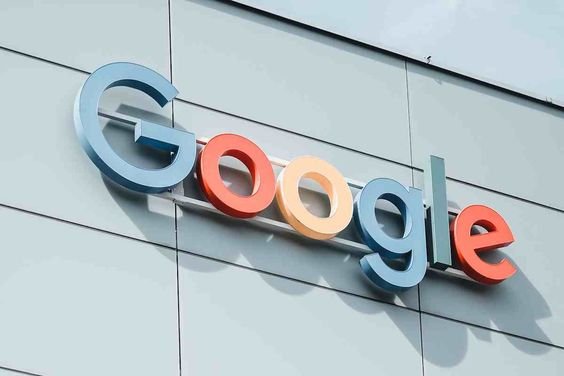
The digital advertising industry is undergoing intense scrutiny, and at the center of the latest regulatory storm is Google. The United Kingdom’s Competition and Markets Authority (CMA), a powerful watchdog tasked with promoting competitive markets and protecting consumer interests, has recently issued a stark warning regarding Google’s practices in the digital advertising technology sector. The CMA’s investigation into Google, which is owned by Alphabet Inc., raises serious concerns that the tech giant may be leveraging its dominant position to stifle competition and harm market dynamics.
This development could have far-reaching consequences for Google, one of the largest players in the global digital advertising market. The outcome of the CMA’s inquiry may lead to severe financial penalties and potentially force significant structural changes in Google’s advertising technology (ad tech) business, which generates billions of dollars in revenue annually. The CMA’s statement highlights the concern that Google’s vast control over different parts of the digital advertising ecosystem is creating an unfair playing field, which could be limiting opportunities for competitors and ultimately harming consumers.
In this article, we will delve deep into the CMA’s investigation, explore the intricacies of the digital advertising technology market, and assess the potential implications for Google, its competitors, and the broader digital economy.
The Rise of Google in the Digital Advertising Industry
Google’s dominance in digital advertising is undeniable. With its vast reach, Google‘s ad tech business forms the backbone of the internet economy, facilitating transactions between advertisers and publishers, and connecting businesses with consumers through highly targeted ads. The company’s ad revenues accounted for more than 80% of Alphabet Inc.’s total revenue in 2023, highlighting the central role this sector plays in Google’s overall business strategy.
The success of Google in digital advertising can be attributed to its comprehensive ecosystem of tools that serve both advertisers and publishers. This ecosystem includes products like Google Ads, Google Ad Manager, and Google AdSense, which offer an end-to-end solution for businesses looking to advertise online. With these tools, advertisers can create campaigns, manage bids, and target specific audiences, while publishers can monetize their content by displaying ads.
Crucially, Google operates in all layers of the digital advertising value chain, controlling both the supply-side (publishers) and demand-side (advertisers) platforms, as well as the ad exchange in the middle that connects the two. This vertical integration gives Google unparalleled power in the digital advertising ecosystem, enabling it to exert influence over pricing, ad placement, and auction dynamics. However, it is precisely this dominance that has attracted the attention of regulators around the world.
The CMA’s Investigation: Key Concerns and Allegations
The Competition and Markets Authority’s concerns center on whether Google’s position in the ad tech industry is harmful to competition. The CMA is particularly focused on Google’s control over multiple key components of the digital advertising supply chain and whether this leads to anti-competitive practices. According to the CMA, Google’s behavior may be restricting competitors’ ability to compete on equal terms, which could ultimately reduce choice for advertisers and raise costs for consumers.
The investigation into Google’s practices is part of a broader initiative by the CMA to scrutinize large tech companies’ influence over critical online markets, especially after the UK’s departure from the European Union. Freed from EU regulatory frameworks, the UK is now empowered to develop and enforce its own competition policies, and the CMA has positioned itself at the forefront of these efforts.
Here are some of the CMA’s key concerns regarding Google’s digital advertising practices:
1. Market Dominance in Multiple Layers of Ad Tech
Google holds dominant positions in three critical layers of the ad tech stack:
- The demand-side platform (DSP), which allows advertisers to buy ads;
- The ad exchange, where digital ad inventories are auctioned;
- The supply-side platform (SSP), which helps publishers sell ad space.
This vertical integration allows Google to operate in a manner that makes it difficult for other players to compete. For instance, Google’s ad exchange, which acts as the intermediary in auctions for ad space, can prioritize its own services, giving its SSPs and DSPs an unfair advantage over rivals. The CMA is concerned that this self-preferencing behavior limits competition and results in higher prices for advertisers.
2. Lack of Transparency in Ad Auctions
Digital advertising auctions are highly complex, and Google’s ad tech stack is no exception. The CMA has raised concerns over the opacity of the ad auction process, arguing that Google’s control over both the buying and selling sides of the market creates information asymmetries that favor the company. Advertisers and publishers may not have access to the same level of information about how auctions are conducted or how their bids are processed.
Google’s ability to collect and leverage vast amounts of user data from its search engine, YouTube, Gmail, and other services gives it a significant advantage in these auctions, enabling more precise targeting of ads. This data advantage, combined with its control over the ad exchange, could mean that Google is able to charge higher prices for its services while offering fewer insights into the workings of the system.
3. Exclusive Data Access
Another concern raised by the CMA relates to Google’s use of exclusive data. Google has access to vast amounts of user data, which is critical for targeted advertising. This data comes from its extensive suite of consumer products, including Google Search, YouTube, Android, and Chrome. Competitors may not have access to comparable data, which puts them at a significant disadvantage when trying to compete in the ad tech market.
Furthermore, Google has been accused of using its data advantage to exclude or disadvantage third-party platforms and services. For example, in 2020, the European Commission opened an antitrust investigation into Google’s practices, alleging that the company was using its data dominance to favor its own services, a case that remains ongoing.
4. Anti-Competitive Conduct
The CMA has raised concerns that Google may be engaging in anti-competitive conduct by unfairly leveraging its market power to lock out competitors. This could take the form of exclusive contracts, bundling of services, or self-preferencing behavior. For example, the CMA has noted that Google’s requirement for publishers to use its ad tools in order to access premium ad inventory could be limiting competition.
By forcing advertisers and publishers to use its entire stack of ad tech services, Google creates a closed ecosystem that limits the ability of other firms to compete. Smaller players may struggle to gain traction in the market because they cannot compete with Google’s scale, its exclusive access to user data, and its control over multiple layers of the ad tech ecosystem.
Potential Outcomes for Google
The CMA’s investigation could have significant consequences for Google’s ad tech business. Depending on the findings, Google may face substantial financial penalties and could be required to make structural changes to how it operates its ad tech stack in the UK and possibly beyond. Some potential outcomes include:
1. Fines and Financial Penalties
If the CMA concludes that Google has breached competition laws, it could impose fines amounting to as much as 10% of Google’s global revenue. Given that Alphabet Inc. generated over $280 billion in revenue in 2023, such fines could be in the tens of billions of dollars. For Google, which relies heavily on its advertising business for income, a significant fine would not only be financially painful but could also impact investor confidence and stock prices.
2. Structural Remedies
Beyond financial penalties, the CMA could impose structural remedies that would fundamentally change how Google operates its ad tech business. This could include requiring Google to divest certain parts of its ad tech stack, such as its ad exchange or demand-side platform, to reduce its dominance across the entire value chain. The CMA could also mandate greater interoperability between Google’s ad tech tools and those of third-party providers, ensuring that competitors have a fairer opportunity to participate in the market.
3. Behavioral Remedies
The CMA could also impose behavioral remedies, requiring Google to change certain business practices to foster more competition. For example, Google could be required to increase the transparency of its ad auction processes, offer advertisers and publishers greater access to information, or change how it prioritizes its own services in auctions. The CMA may also seek to limit Google’s ability to leverage exclusive data to the detriment of competitors, forcing the company to share certain anonymized data sets with third parties.
4. Impact on Future Regulation
The outcome of the CMA’s investigation could have broader implications for the regulation of the digital advertising market and large technology companies. Should the CMA succeed in implementing strict measures against Google, it could set a precedent for regulators in other jurisdictions to follow. This could result in a wave of new regulations targeting tech giants like Google, Meta (formerly Facebook), and Amazon, forcing them to adopt fairer and more transparent practices across multiple markets.
Google’s Response to Regulatory Scrutiny
Google has long maintained that its ad tech services are designed to help businesses grow and succeed online. The company argues that its tools benefit both advertisers and publishers by improving efficiency, delivering better-targeted ads, and helping to fund free content on the internet. Google also contends that the digital advertising market remains highly competitive, with companies like Meta, Amazon, and Microsoft playing significant roles.
In response to past regulatory investigations, Google has taken steps to address competition concerns. For example, the company has made commitments to increase transparency in its ad auctions and has agreed to cooperate with regulators on data-sharing issues. However, critics argue that these steps are insufficient and that Google’s dominance in the market continues to raise red flags.
Google’s defense in the face of the CMA’s investigation is likely to center around its contribution to the digital economy, including the creation of jobs, its support for small and medium-sized businesses, and the value its services provide to consumers. Nevertheless, as regulatory pressure builds, Google may need to make more substantial concessions to avoid harsh penalties.
Implications for the Broader Digital Economy
The CMA’s investigation into Google is part of a larger trend of regulatory scrutiny targeting Big Tech’s role in the global economy. As governments and regulators around the world grapple with the outsized influence of technology companies, digital advertising has become a key battleground.
1. Impact on Advertisers and Publishers
For advertisers and publishers, the CMA’s investigation could lead to more competitive market conditions, greater transparency, and lower costs. If Google is forced to make structural changes, advertisers may find that they have more choices when it comes to selecting ad tech partners, and they may benefit from more favorable pricing and terms.
Similarly, publishers could gain access to a more level playing field, allowing them to compete on equal terms with Google when it comes to selling their ad space. Increased competition could result in better revenue opportunities for content creators, which could, in turn, support a more diverse and vibrant digital economy.
2. Opportunities for Competitors
Should the CMA successfully curtail Google’s dominance in the ad tech market, it could create significant opportunities for competitors. Smaller ad tech firms, as well as larger players like Meta and Amazon, may find that they are able to gain a greater foothold in the market, particularly if they are able to offer innovative and competitive alternatives to Google’s services.
In the long term, a more competitive ad tech ecosystem could spur innovation, improve efficiency, and ultimately benefit consumers by reducing the overall cost of digital advertising. Lower advertising costs could lead to lower prices for goods and services, as companies are able to pass on savings to consumers.
The CMA’s warning to Google marks a significant moment in the ongoing debate over the power and influence of Big Tech in the digital economy. The CMA’s concerns about Google’s dominance in the digital advertising technology sector are reflective of broader anxieties about the role of large technology companies in shaping the online marketplace.
As the CMA’s investigation progresses, the potential outcomes could have profound implications not only for Google but for the entire digital advertising ecosystem. Whether through fines, structural changes, or behavioral remedies, the CMA is likely to push for measures that promote greater competition, transparency, and fairness in the ad tech industry. For Google, the stakes are high, and how the company responds to this regulatory challenge could shape the future of its business for years to come.
In the broader context of global efforts to regulate Big Tech, the UK’s actions could serve as a blueprint for other jurisdictions looking to rein in the power of companies like Google. Ultimately, the outcome of this investigation will be closely watched by regulators, competitors, advertisers, publishers, and consumers alike, as it has the potential to reshape the digital advertising landscape on a global scale.
ALSO READ: Top Certifications for Quantum Programming Languages in 2024







